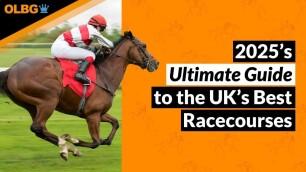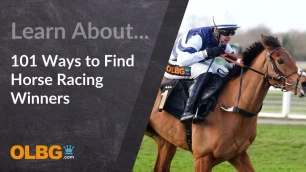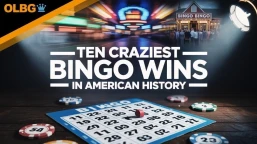
I've spent over 20 years inside the betting industry. I'll guide you to avoid the hype, ignore the noise, and steer clear of the common pitfalls that catch out everyday punters.
Be Sensible With Your Gambling Approach
Since OLBG was created we have always advocated sensible gambling.
All forum posts and blogs that were regarded as reckless or downright stupid were removed when we noticed.
Our staff always tried to post, tweet, and write in a way that hammered home the need for members to bet within their means, take breaks, and treat gambling as fun.
We created a stand-alone betting school article called: How to be sensible and gamble responsibly and we suggest that if you are new to betting or need a refresher you spend some time reading the guidelines within that comprehensive article.

Many people bet for fun but losing money by gambling, I would hardly call that fun!
If you treat your betting as a business you can start to turn losses into profits, which is more fun and way more sensible.
Now if you are a fun gambler and do not mind losing money then this article may not be for you.
Likewise, if you're not in the mood for a long read then it's not going to float your boat either.
However, please read on if you want to change your fortunes, start turning losses into profits, and take full advantage of the new digital betting landscape.
Odds Against
Business Betting Plan - Should I Have One?
Without a plan of any sorts, you will not reap the benefit from your betting
The bookmaker is a business, they treat their betting as a business, and if we are to have any chance of doing business to our benefit with them, we have to act like a business too
You may, in the past, have begun a new business. or a venture into something you either enjoy or are good at.
An opportunity has arisen where you have been prepared to invest some of your money, money that you have worked hard for, into an idea, a project, a business, that can increase that investment and earn you a living.
Say you have £2000 to invest to start your project, now, imagine this scenario. You spend 20 minutes. NO, you spent 2 hours researching your investment and open the doors for business.
How do you think you will do? Have you given it enough time, done enough research, drawn up business plans, targets, contingencies?
Well of course you haven't, not enough time has been invested to have possibly covered all those things that are needed.

So you have gone into business, invested your money, and now are sitting just waiting for the inevitable to happen. That inevitability is that you will lose some if not all of the money you have put into the idea.
Now change the situation.
You have the same £2000 to invest, you pick up the racing post, check the football form, spend a couple of hours researching the results, the form the races and games.
Are you really in the best position now to invest that money? you may get lucky and get a return at the end of the day but even then, what are you going to do with that profit? what was the goal for the day? the week? the year!
Do you take stock of how you came about that betting profit at the end of the day/week?
Do you look back at what won and what lost and wonder why you got it right somewhere and wrong somewhere else? probably not!
Preparation
And now you have £2100 in your pocket, feeling quite smug and celebrating with a takeaway and a few beers!
That's all very well and good., well done. but what is the betting plan for tomorrow, next week?
It may be that the plan is simply to win a few quid and turn it into a treat but what happens if that £100 win doesn't happen and the end result is a £200 loss?
Do you concentrate your mind on the money that is gone, or concentrate on your business plan? Oh, hang on! there isn't a business betting plan!
Get On With The Plan !
Get on with it!
I want to know more about this betting for-profit business plan!
That's quite an intro for what is to come but it highlights some basic flaws in the day to day gamblers approach to betting.
In fact, it's not betting, it is gambling pure and simple and the plan here is to approach that gambling and turn it into betting;.
These are two very different disciplines.

If you are happy gambling, not knowing truly if in the long term you are in profit or in loss, not knowing how you came to win or lose in the process then I shouldn't worry about the rest of this.
If you do.
- Want to win more and lose less
- Know how much you have won and lost
- Identify key elements
- Manage your betting bank
- Make your betting bank last longer
- Grow your betting profits
- Fully understand the changes in betting technology
Goals
Let's Plan
I'm going to use hypothetical numbers here to illustrate a betting plan.
Whether you want to bet for small profits or try to make a living from betting, the same principles will apply.
We are going into business, the business of beating the bookies!

Let's look at the opposition
The bookmakers have the money and we want it.
We have to give them some first and if all goes well, they will give it back, with interest.
We have stumbled across our first problem before placing a bet.
We are the customer, they are the business.
They treat us like a customer whereby they offer something for sale with profit built-in and we buy it.
We have to beat that profit and be a better business than them.
They have years of experience in running their business; they have teams of executives with existing plans, developing new plans and setting targets.
Each bookmaker has running costs, plans will be devised to ensure profits cover those costs and profits are made to satisfy the top bods and the shareholders alike.
It makes perfect sense then; we too, should have a plan.
Our costs are relatively low.
We may buy a Racing Post, subscribe to Sky Sports, pay for a professional tipster, or use Betting System software.
We may visit the racecourse to enjoy our sport.

2025 Ultimate Guide to the UK's Best Racecourses
These could be considered our day to day business costs. I will ignore the "going racing" element. These days, that's quite unnecessary, not to mention expensive!
We may spend the £20 a week on running our business before we invest in our first bet. So we need to plan to make at least that much on a weekly basis to cover our costs.
I plan my various approaches in spreadsheets, they are the perfect way for me to set out my betting plan and see what I have to do to reach my target.
Two aspects to consider is what percentage of growth do I want to make? and how much of my bank am I willing to risk?

The Best Staking Plans Revealed! | Unlock Your Betting Success:
How Much Do I Want To Win?
If I start with a £500 bank.
and on average, made just 2% profit per day, in six days (let's have one day a week off), the bank could be increased to £563.08.

A bank growth of 12.6%. That's not a bad return at all. In fact, that's an incredible return.
I shan't do it here to kick start delusions of grandeur but just imagine what £500 would be at 12.6% growth week on week for a year.
Oh OK then, about £140,000!!
Realistic or not, that's for you to decide.
Whilst I am ever the optimist, that is a huge sum and we have yet to factor in losing days, weeks or months, which will make a huge difference to these numbers.
But it illustrates how trying to make just £10 from £500 right from the start can escalate and is more than sufficient a return on investment.
No need to plop the monkey (£500) on a 4/1 shot in one hit then right?
So, we have our target 1-2% per day and that will be just fine and dandy thank you very much.
The next thing to consider is how much of our betting bank we are willing to invest to get our return.
How Much Should I Bet?
For years and years, I have been an advocate of level stakes betting.
This followed years and years of not realising that banging £50 on a evens shot but only a fiver on a 20/1 bet was the quick way to the poor house.
If I thought something would win, why would I let the price change what I would bet?
I am more inclined these days to stick with level stakes for recording my bets alongside the monetary value.
A Budget
What I mean by this is that I will record, regardless of my eventual stake, 1 point per bet as well as my actual stake.
It gives me, in my records, a steer on whether my staking is working or not.
For instance, If at level stakes I am showing a profit, but in monetary terms I am not, my staking needs looking at.
Thankfully, that is a task I undertook a while ago now, and here I recommend using a percentage of the bank as your stake.
This can still equate to one point investment.

Using the £500 bank, by betting 2% per bet, the first bet would be £10, by the time the year is up and we have £140,000 tucked away we are now staking at £2800 per bet.
Whoa there tiger hang on!, We are getting carried away again.
The real reason for this staking plan is that when losing runs occur, the stakes reduce in line with the bank, ensuring that the bank isn't just frittered away on one bad run.
Conversely, winning runs can also be monopolised upon as the stake values get higher and higher the longer the winning run continues and the bank builds that much quicker.
"Hang on though, If I am betting 10% cent of the bank each time, doesn't that mean I have only ten consecutive losing bets before the bank has disappeared?"
No. Because the bank reduces with each loss, the ten percent remains the same, not the original stake.
Theoretically, the bank will last forever(ish), 10 bets of 10 percent of the bank would still leave £174, with the next bet still being £17.40.
Another ten losses and you'll have £60 left and so on.

Master the Art of Sports Betting: How to Become a Professional Gambler?
Daily/Weekly/Yearly Targets
We now know what we want to do and how we are going to do it, you have to decide now is what is a reasonable return on a daily, weekly, annual basis for you.
I am happy to suggest that given the outlay of £20 a week for the papers, TV etc as explained earlier, to cover that and win the same amount would be sufficient.
Who wouldn't say no to an extra £20 a week?

It doesn't really matter what the figure is, but you can see that £20 a week is £80 a month and you can adjust your bank, staking levels, and daily, weekly expectation to fit the circumstances you desire.
Certainly, I would be more than happy throwing 1-2% of my bank at bets, and stop at a certain level each week,
This would either with a view to drawing down my profit as and when it comes, for those treats, or reinvesting the profit.
So now we have our target profit and maximum risk per bet, so how do we work on a daily basis.
Do we go for the target profit gung-ho style or do we stop at a winner regardless of where we are to target?
Well, that is entirely up to you but I would advise going for slightly more than target each day, by doing so, and stopping when you get there, you can account for some losing days.
Also equally important is losing.
- BETTING LOSSES ARE INEVITABLE
- BETTING LOSSES WILL HAPPEN
- BETTING LOSS HAS TO BE ACCEPTED
What you do when you lose is the single most important part of your plan.
Indeed include losing in your plan.
Create a faux run of results and throw in losses and see how it will affect your bank, stake etc. It will help you understand how your plan could turn out.
Betting Losses
The biggest mistake people make when saying what could happen, is that they do not include gambling losses.
This deems these plans to failure straight away as when they come along, that person now doesn't know what to do.
By planning ahead for losses and understanding the effect they will have on your targets and timelines, it will make them that more acceptable emotionally when they happen.
You will not be affected by them and won't go chasing the loss. They have become part of your plan, you will welcome them eventually.
I know that sounds strange but it keeps the business plan real. On a daily basis, you should have a plan for losses outside of your main plan, how much of your bank are you willing to lose on any given day.
This may be dependent on your betting style or original plan.
2% of 500 is 10, 2% of 490 is 9.80, 2% of 480.2 is 9.60 - your bank stands at 470.60, you have lost 5.9% of your bank with those three consecutive losers.
For me, this would be the maximum of my bank I would want to lose in a single day, so worth considering a stop loss at three bets.
Again though, this may be something that would be a regular occurrence if you are backing at higher odds, or less often at odds on say.
It is important to understand the probability of losing runs based on required strike rates for certain betting odds.
If you look to bet at all manner of prices from odds on to 20/1 say, then when your records come together, work out the average odds of your selections, the average odds of winners, check you strike rate and you can work out from there how long you might expect a losing run to last from time to time.
The final thing is what you bet on in your business plan. That's not something I can have an element of control over, it is up to you. But you have now a plan in place.
It is vitally important now to STICK TO THE BETTING PLAN.
Don't divert, do something silly or out of the ordinary. If you feel the urge to do it, then use a different bank or account to do it.
Leave this one just as it is, and make sure every bet is recorded along the way with as much information about the event that you can record.
If it's horse racing I would suggest the following areas to record:
Also and most obviously, record the stake, profit or loss, a running balance of the bank and a return on investment figure.
For other sports apply the same logic; record as much detail about the event as you can, it will pay off in the end
With all these details noted; once you have say one hundred live bets recorded, you can start analysing your records and see which areas you are best or worst in and eliminate those that you have recorded losses on.
These first 100 bets can be painful, and recording them can be a chore, but trust me, when you get to 100 bets, you can see so much from the effort you have put in.
It may be that you have little bank left after 100 bets but it will be the best £500 you ever spent. The next £500 will last twice as long and the next may never run out.
You have to run and maintain your business and as with any business or any aspect of life, you will reap the rewards of your efforts eventually.

You simply have to have a plan and have a goal and the inclination to work hard at plying your trade and you can make it work, most importantly by recording what you do, you can have a tangible view of the rewards for your efforts.
It Is Up To You
By having your plan, your target, and a record of all your "business dealings", you are now working like the bookie. And there are not many poor ones of those about!
Your plan doesn't have to be rigid, it will naturally change as it progresses.
This is what the bookies do on a micro level every minute of the day. Not only do they have a profit margin built into the betting odds they sell to us but they also have the benefit of being able to change the product or at least the value we can get from our purchase.
If you see a bet you like at say 6/1, you decide you will either want to buy or not but those odds may change before you can get to them. Do you still buy?
It's a bit like seeing a really good table with four legs at a price your willing to pay, only to get closer and realise it has only three. You still have to pay the same amount to take it but it offers less value.

You decide what a value bet is and that is a discussion for another day; the point being, the bookies can change those things every minute of the day, it's a small part of maximizing the potential of their business plan.

Master the Art of Value Betting and Maximize Your Winnings
Whist we as punters will not have the sophistication to do the same, we have choices to make every day and we should consider those choices carefully and have a measured approach with a new start each and every morning, week, month.
Whether you are backing, laying, trading, or maybe you are a spread bettor the plan, the targets and the execution of them make half the job of trying to make a profit complete. All you have to do now is find sufficient winners at a strike rate and price to grow that bank.

101 Ways to find Winners in Horse Racing
If this all sounds like too much hard work for a bet, then picking up the football coupon on a Saturday, filling it out, and enjoying the sport through the afternoon may be your best bet for leisure, if not for profit.
Have fun, any questions let me know, and here's to a new measured approach to your betting for profit, and don't forget to check out the betting school article on sensible gambling.
FAQ
FAQ
Betting Plan Frequently Asked Questions
What should I include in my betting plan
Having read the above OLBG.com article, you should have
- A clear objective
- A timeline
- Risk factors
Alternatively, why not undertake a SWOT analysis?
Strengths, Weaknesses, Opportunities, Threats.
What goals should I have
S.M.A.R.T. is an acronym used as a mnemonic device to establish criteria for hitting your goals
- It would help if you made your goals Specific, Measurable, Achievable, Relevant, and Time-bound - S.M.A.R.T.
Should I review my betting plan from time to time
You must review regularly. Having kept detailed records, this should become easy. What are your short-term and long-term goals? Are you nearer? If the plan needs updating, then just do it. It's your plan, remember?
How can I ensure my friends, family, and colleagues buy into my betting plan
If you are a sole bettor, then it would help if your family were supportive. If part of a betting team or syndicate then communicate and involve others, plan regular updates, and ensure everyone is motivated.
Editorial Information
OLBG Editor in Chief Steve Madgwick is the lead author of this betting business article.
Betting expert Nigel Skinner updated the text and added images and quotes to further enhance the understanding of betting as a business.




